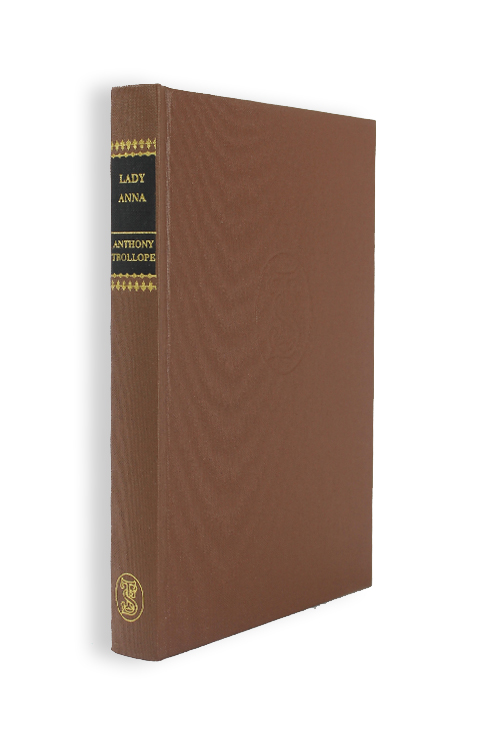Lady Anna
The Trollope Society Edition Clearance Sale is only available in the UK.
Original price was: £30.00.£5.00Current price is: £5.00.
Clearance Sale UK only
Coupons are not valid with this offer
Available to members only
Introduction by Paul Johnson
335 pages
London, Chapman and Hall, 1874. 2V.
Originally published in The Fortnightly Review, April 1873 – April 1874.
Without love or without marriage as a subject of study, there would be few novels. In Trollope, one should also add, without bigamy; which he used in at least seven novels, as a mainspring for his plot.
Lady Anna is an excellent feat of story telling: yet it shocked Victorian society. It was not the callous behaviour of the unpleasant Earl Lovel which shocked: but the dangerous anarchy implied in his daughter’s determination to marry beneath her – to marry a working tailor, who was, in addition, a free speaking Radical. The plot is straightforward enough. Josephine Murray married a debauched and wealthy Earl out of ambition. Out of malice, he disowned her, claiming he had made a previous marriage. Lady Lovel – if Lady she could correctly be called – abandoned, friendless, with a daughter to bring up – was for many years helped and sheltered by a local tailor, as a matter of common humanity.
When the Earl dies, leaving his estate to yet another supposed wife from Italy, Lady Lovel successfully challenges the will. But the case is complicated by unprovable reports of yet another marriage. While the legal processes grind slowly on, her daughter, Lady Anna, has fallen in love with the tailor’s son. The legal experts, who have an heir to the earldom in a distant cousin (who is perfectly agreeable) suggest that a convenient solution to the tangles of the estate would be for Lady Anna to marry the new young Earl. But she will have none of it. She has given her word, and will not be moved – not even by the increasingly desperate machinations of her obsessive mother, which lead her to the brink of madness.
This interesting novel, written on board ship in the two months it took The Great Britain to travel from Liverpool to Sydney, is another shrewd study of the nature of the power of obsession.
